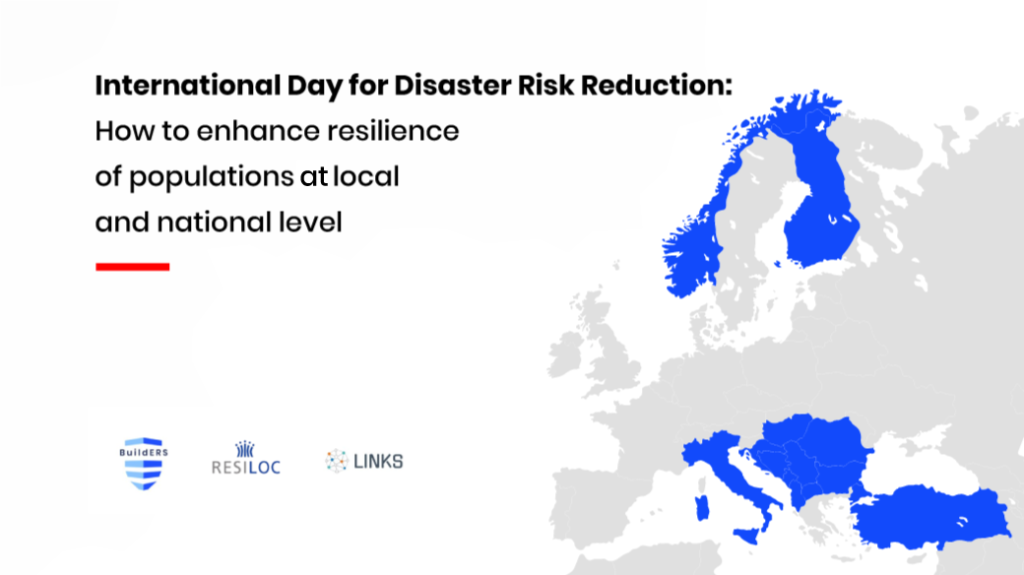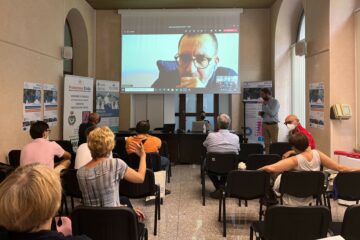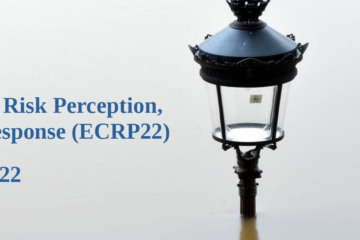A few days ago, on the 13th of October, we all celebrated the International Day for Disaster Risk Reduction acknowledging the importance of protecting lives, livelihoods and health and eliminating disaster risks – targets which are fully aligned with the Sendai Framework for Disaster Risk Reduction 2015-2030 adopted at the Third UN World Conference on Disaster Risk Reduction in Japan in March 2015.
This year’s focus was on disaster risk reduction strategies, plans, initiatives (local and national) that have an impact on citizens’ lives and can potentially prevent existing risks and avoid new ones. In simple terms, a good disaster risk governance.
With the support of the United Nations Office for Disaster Risk Reduction, the Committee of the Regions Natural Resources Commission organized a workshop bringing together local (cities and municipalities) and regional representatives to share their experience in building local resilience in the face of a complex risk landscape, recently exacerbated by the pandemic outbreak.

Responding to this global awareness movement, the DRS-01 cluster projects, BuildERS, Resiloc and LINKS joined forces under the common goal to present local and national initiatives from different countries that aim to increase resilience and preparedness of local communities in case of a disaster.
The case of Italy
According to a recent publication, Italy is exposed to a number of major natural risks. In the period 1944–2012, earthquakes, landslides and floods have resulted in huge losses with an economic cost of 3.5 billion Euros per year. Risk prevention and mitigation (RPM) has become a national priority, and therefore, the Italian Government has earmarked financial resources for RPM through a multitude of laws.
Besides the financial resources, a great number of initiatives and moves coordinated by local and regional authorities were launched to increase resilience.
The department of Civil Protection of Regione Sicilia states ”Our communities are exposed to so many risks that we can increase our safety only by increasing our resilience”. An initiative, called ”Io non Rischio” has been launched by the local authority aiming to create awareness about risks and educate the local community to prepare and respond to crises. In the capital of Silicy, Catania, the local authrority, Comune de Catania, has established a local resilience team (citizens and businesses) enabling dialogue and improving community resilience together
Another civil protection plan is currently developing by the University of Frlorence. In involves all the Athenaeum community and is designed as an inter-municipality plan to gather contents of existing plans at the municipality level. The UNESCO Chair on Prevention and Sustainable Management of Geo-hydrological hazards of the University of Florence is a signatory of the Kyoto 2020 Landslide Commitment (KLC2020). The KLC2020 promotes a global understanding to reduce landslide disaster risks which aligns with the Sendai Framework, the UN Sustainable Goals 2030, the New Urban Agenda and the Paris Climate Agreement.
The case of Finland
A very interesting campaign has been launched by the Finnish government to tackle misinformation during the pandemic.
Together with the network of media companies, the Finnish government engaged social media influencers to share reliable information about coronavirus and correct false news. During the campaign, the Finnish Media Pool of the National Emergency Supply Agency educated hundreds of influencers on how to communicate about coronavirus and how to cope during difficult times both mentally, economically and physically. The campaign began with a mapping of the most significant influencers and continued with regular information sharing.
Influencers’ feedback was mainly positive: 97% of the influencers who took the survey saw the campaign as useful. Correspondingly, 97% of the influencers’ followers considered the shared information reliable and almost half of the followers changed their behaviour according to this information.
The case of Hungary
Recent action has also been initiated by the Hungarian authorities in response to COVID-19 crisis. As one of the first actions of the government to involve charity organizations was the establishment of the National Humanitarian Coordination Council on 13th Mach 2020. The already existing Charitable Council was made up of the six largest Hungarian charities: the Catholic Caritas, the Hungarian Maltese Charity, the Hungarian Red Cross, the Hungarian Interchurch Aid Organization, the Hungarian Reformed Church Aid and the Baptist Aid. The Charitable Council acts as the National Humanitarian Coordination Council (NHKT) in emergencies. The NHKT works in co-operation with the Operational Staff Responsible for the Control of the Coronavirus Epidemic and the Volunteering and Donation Coordination Task Force, which is responsible for co-ordinating charitable assistance.
At its first meeting, the Council unanimously agreed that the charitable organizations’ own donation lines had been suspended, replaced by the common donation line 1357, the National Co-operation Line and a related bank account number to centralize donations.
The case of Norway
In Norway, initiatives, plans and programmes to reduce disaster risks are formulated under the national policy called societal security. This policy deals with threats, risks and crises ranging from societal, environmental and economic national and transnational challenges and aims to provide Norwegian society with competencies and resources for identifying, dealing with, and surviving them. In the case of manmade or natural risks, societal security relates to the whole spectrum of activities within preparedness, prevention, mitigation, response and recovery.
The main institution in charge of this is the Norwegian Directorate for Civil Protection (DSB), which reports to the Ministry of Justice and Public Security. DSB, in cooperation with the Water Resources and Energy Directorate (NVE) and the National Road Authority, coordinates the Norwegian National Platform for Disaster Risk Reduction (Naturfareforum). This platform fosters cross-sectoral cooperation between national, regional and local actors to reduce vulnerability to natural hazards by identifying deficiencies in their prevention and management and by proposing measures to overcome these deficiencies.
In 2020, DSB launched the Knowledge bank for risk and vulnerability (Kunnskapsbanken), which collects information from various sources on natural hazards, disaster loss, critical societal functions. This information is used to formulate risk and vulnerability assessments and local planning.
In summary
What we can learn from the above cases is that fostering resilience is highly linked with raising awareness across the local community and authorities. Learning from past experiences clearly shows that a resilient population matters more than a resilient infrastructure in view of a disaster. Good and effective governance also matters as it brings together different actors to build a better and more resilient system at the local and national level based on citizens’ engagement and cooperation.



0 Comments